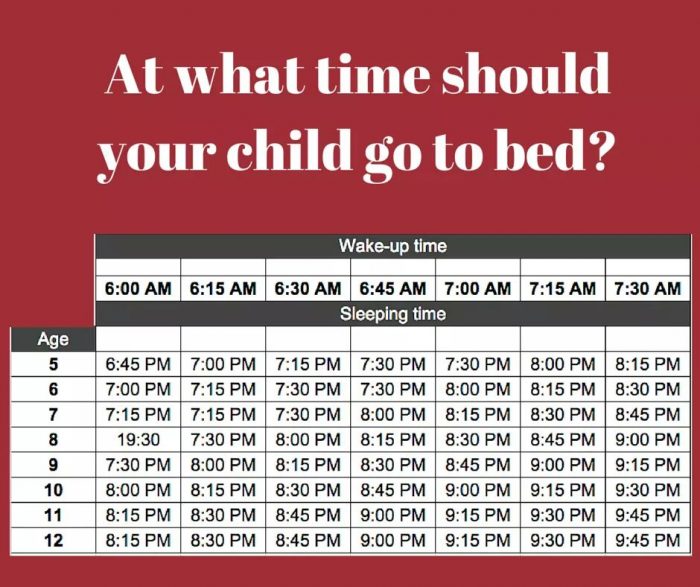Everyone knows that sleep is important, especially when it comes to your child’s health. Bedtime has a big impact on both their physical and mental health. Kids need sleep in order to reset their body and keep their minds sharp, but it can often be difficult to calculate how much sleep your child actually needs. As they get older their sleeping habits change. As parents, it’s important to be aware of how much sleep your child is getting to help them function the best they can!
Mental Benefits of Sleep
 Children who have a bedtime routine and get the recommended amount of sleep per night develop better than those who don’t. Sleep deprivation has a direct impact on the brain’s ability to function. The prefrontal cortex and amygdala are parts of the brain that help regulate your emotions and without enough sleep, the connectivity between these parts is impaired.
Children who have a bedtime routine and get the recommended amount of sleep per night develop better than those who don’t. Sleep deprivation has a direct impact on the brain’s ability to function. The prefrontal cortex and amygdala are parts of the brain that help regulate your emotions and without enough sleep, the connectivity between these parts is impaired.
A study in the Journal of Pediatric Psychology also found that lack of sleep can hurt your child’s academic performance. They conducted a study on 32 children who for one week went to bed an hour earlier than normal and another week an hour later. Each week they monitored how the child behaved in school and at home. The study showed that the children’s short-term memory, attention span, and math fluency were impaired during the week where they went to bed an hour later.
Physical Benefits of Sleep
Children also need sleep to help regulate their hormones, appetite, and metabolism. This is important in helping your child stay physically fit as studies show that children who don’t get enough sleep are more likely to become obese. The Journal of Pediatrics studied the sleeping habits of over 900 participants and compared it to their BMI in adolescence. They found that with each additional hour of sleep their likelihood of becoming obese decreased by 30%.
This is believed to happen for a number of reasons. According to the US National Library of Medicine lack of sleep caused children to develop habits that lead to gain weight such as emotional eating and eating more during the day. Less sleep also shaped their eating behaviors by promoting more snacking during the day and greater feelings of hunger.
Finding a Good Bedtime
Depending on your child’s age and wake up time the hour that they go to bed and the amount of sleep they need will change.


This chart is a great indicator of the time that your child should sleep but can be hard to follow depending on your schedule. So here are a few recommendations from the National Sleep Foundation on how much sleep is appropriate for your child.
1.Toddlers (1-2 Years)
Toddlers need about 11-14 hours of sleep over 24 hours. At this age, they should also be napping once a day for about 1-3 hours. When it comes to bedtime, set rules that are consistent and keep to a routine every night.
2.Preschoolers (3-5 Years)
Preschoolers need around 11-13 hours a night. At this age falling asleep can be difficult. Since kids at this age have an active imagination it is common for them to experience things like nightmares, sleepwalking and sleep terrors. It helps to have a relaxing bedtime routine and have them sleep in the same room every night.
3. Older Children (6-13 Years)
At this stage, it is recommended to get 9-11 hours of sleep a night. Older children are also dealing with things like school work and a desire to spend time watching TV and going on social media that can affect their sleep schedule. To help your child get a better quality of sleep keep all electronics out of the bedroom to create a dark, cool and quiet sleeping space.
Conclusion
Sleep is important! Children are constantly growing and experiencing new things so they need the energy to do so. It is the best way to keep their physical and mental health in check so they can be their best. Putting your kids to sleep earlier can benefit you as well. This Study Confirms Putting Kids to Bed Earlier is Better for Moms’ Sanity!
*Article originally appeared at Healthy Holistic Living.












